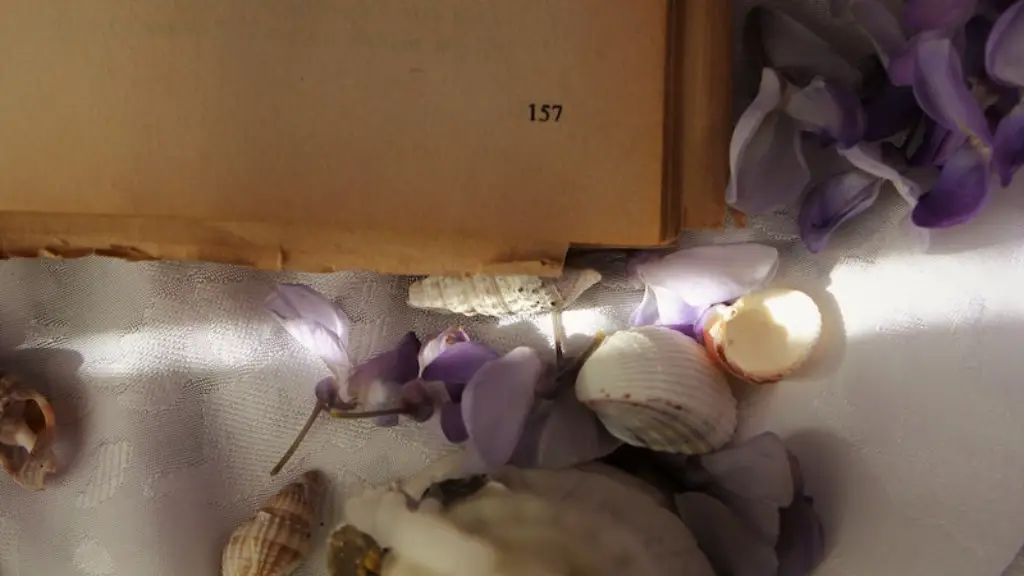Modernist poetry has had a profound impact on literature and culture beyond its own era. Originating from the late 19th and early 20th centuries, modernist poetry is known for its rejection of Romantic ideals, its break with traditional forms, and its exploration of newly emerging themes. Its influence continues to this day, with contemporary poets and those of the future often citing the work of modernists as a source of inspiration.
Central to modernist poetry is the idea of fragmentation and dissolution of traditional modes of speech. Poets such as Ezra Pound, T. S. Eliot, and William Carlos Williams sought to break away from traditional forms and wrote verse that sought to capture the complexity of modern life by fragmenting language and imagery. Pound’s famous poem, “The Cantos”, is perhaps the best example of this approach, mixing traditional forms with a dreamlike quality reminiscent of surrealism.
Another core element of modernist poetry is its questioning of traditional poetic conventions. After the “loss of faith” due to two world wars and the conflict between science and traditional beliefs, many poets of the era asked the fundamental question: “what is poetry?”. This question led them to experiment with various approaches and forms, often rejecting the traditional forms of narrative, rhyme, and meter in favour of more innovative approaches.
The search for poetic technique is what led to much of the innovation that is associated with modernist poetry. In this era, poets explored the use of concrete and abstract imagery, employed satire and irony, used internal monologues to create a sense of immediacy, and experimented with the principles of free verse. These developments can be seen in the works of William Carlos Williams, Wallace Stevens, and W. H. Auden, among others.
Modernist poets also dealt with highly personal themes. They wrote about the experience of anxiety, depression, doubt, and guilt during times of political and social upheaval. These themes can be seen in T.S. Eliot’s “The Waste Land”, W.H. Auden’s “The Shield of Achilles” and Elizabeth Bishop’s “The Fish”, among many others. Through their works, they sought to convey their own feelings and emotions, as well as the feelings of collective suffering and despair that was so pervasive in the period.
The influence of modernist poetry can be seen in many aspects of contemporary culture, from the visual arts to popular music. Its influence on literature is particularly evident in the works of contemporary poets such as Seamus Heaney, Ted Hughes, and Carol Ann Duffy. Furthermore, its experiments with language, imagery, and form have had a lasting impact on how we appreciate and understand poetry today.
Stream of Consciousness
An important component of modernist poetry is its use of stream of consciousness techniques. Stream of consciousness is a narrative technique in which a narrator’s thoughts and feelings are presented as a continuous flow, without any editing or interruption. This technique was made famous by writers such as James Joyce, Virginia Woolf, and William Faulkner, but was used by many modernist poets as well. Among them were T.S. Eliot, Sylvia Plath and William Carlos Williams, all of whom used stream of consciousness to explore the chaotic inner lives of their characters, and to capture an atmosphere of instability and alienation.
Experimental Techniques and Forms
Modernist poetry also experimented with various techniques and forms. These include the use of concrete and abstract imagery, stream of consciousness, satire, internal monologues, and free verse. These techniques often allowed the poet to capture the complexity of modern life and the feelings of displacement and angst that it brought. T.S. Eliot’s “The Waste Land” is perhaps the best example of this, combining traditional allusions with innovative techniques and stylistic devices to capture the feeling of an entire era.
Influence on Popular Culture and Music
The influence of modernist poetry can also be seen in popular culture and music. From Bob Dylan’s use of stream of consciousness to Kanye West’s sampling of T.S. Eliot’s “The Waste Land”, modernist poetry has had a profound impact on the language, imagery, and themes of popular music. Indeed, many of the most influential artists of today cite modernist poets as a source of inspiration, and have used their works as a way to explore their own feelings of alienation and displacement.
Legacy
The legacy of modernist poets is one of innovation and experimentation. Their works have inspired countless poets, both before and after them, and have had a lasting influence on literature, music, and culture. From their questioning of traditional poetic conventions to their exploration of form, language, and imagery, the works of these poets remain as vital and relevant today as they were when they were written.


